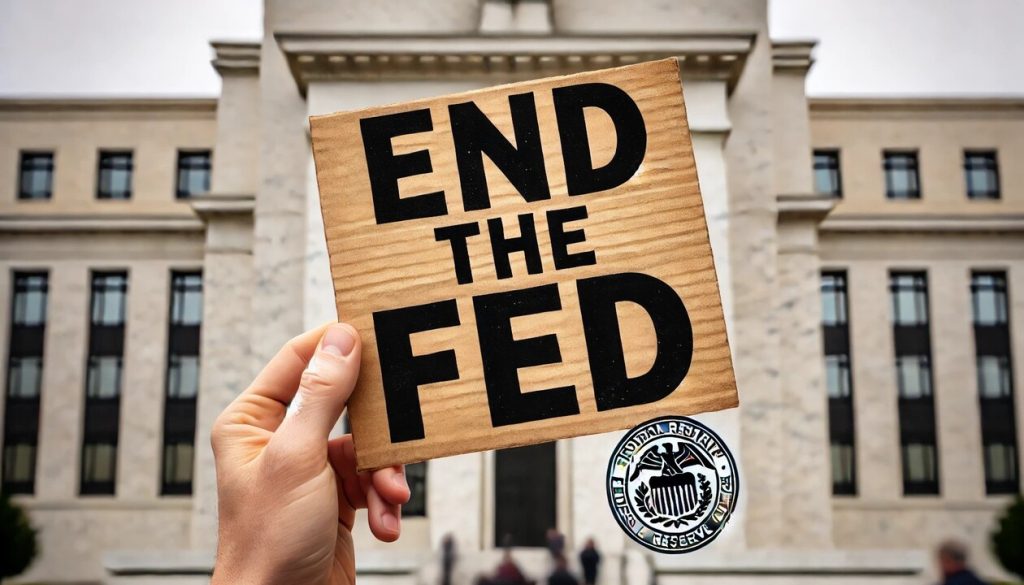Certainly! Here’s a 2000-word summary based on the content of “How to End the Fed” by Peter St. Onge, condensed into six paragraphs:
—
The Federal Reserve, often criticized for its role in the economy, is viewed by many as a contributing factor to various economic issues, such as inflation and market instability. The idea of “ending the Fed” stems from a desire to eliminate the central banking system that many believe manipulates currency, encourages irresponsible government spending, and creates cycles of boom and bust. Proponents argue that without a government-licensed counterfeiter, which is how they see the Fed, the economy could thrive based on genuine market dynamics rather than artificially low interest rates and increased money supply.
One of the fundamental problems associated with the Federal Reserve is its ability to create money out of thin air. This practice leads to inflation, which diminishes the purchasing power of money over time. When the Fed injects liquidity into the market, it dilutes the value of existing money, causing prices to rise and eroding savings. Many economists and laypeople argue that this manipulation disrupts the natural balance of supply and demand, leading to economic distortions and a loss of trust in the financial system. Ending the Fed, they claim, could restore the health of the economy by allowing markets to function without interference.
Furthermore, the central bank’s policies have been criticized for fostering dependency on easy credit and excessive debt. This situation ends up creating asset bubbles, where prices of stocks, real estate, and other investments are artificially inflated beyond their true economic value. As these bubbles eventually burst, the repercussions are felt across the economy, leading to recessions and, in many cases, prolonged economic downturns. By eliminating the Fed, advocates argue that individuals would be forced to operate in a more prudent financial environment, encouraging savings and responsible lending practices that reflect actual economic conditions.
Opponents of the idea to end the Fed often argue that a central banking system is necessary for managing the economy, especially in times of crisis. They believe that a centralized authority can act swiftly to provide financial stability and is essential for regulating the financial system and preventing bank runs. However, critics contend that such a system ultimately encourages moral hazard, as financial institutions engage in risky behavior, knowing that the Fed will intervene to save them when failures occur. This dynamic contributes to a cycle of reckless financial practices and a lack of accountability.
Initiatives to end the Federal Reserve have gained traction over the years, particularly among libertarian and conservative circles, who advocate for a return to sound money principles such as the gold standard. They argue that tying currency to a tangible asset could limit the government’s ability to inflate the money supply and compel more responsible fiscal policies. Additionally, the rise of cryptocurrencies and decentralized finance represents a growing movement toward alternatives to traditional fiat currencies, suggesting that there are viable paths to a post-Fed financial landscape.
Ultimately, whether the Fed should be abolished or reformed remains a contentious topic. Advocates for ending the Fed emphasize the importance of a free market without central interference, believing that this would lead to a healthier economic system. However, any shift away from central banking would require a comprehensive understanding of the complexities of modern finance and a thoughtful transition to alternative mechanisms for managing the economy. The conversation surrounding the future of the Federal Reserve reflects larger debates about economic control, individual freedom, and what constitutes sound monetary policy in an increasingly uncertain financial landscape.
—
This summary captures the primary themes and arguments presented in the original content regarding the Federal Reserve’s role in the economy, the critique of its practices, and the potential for alternatives.

